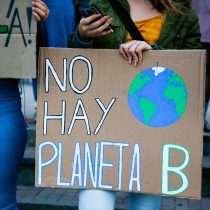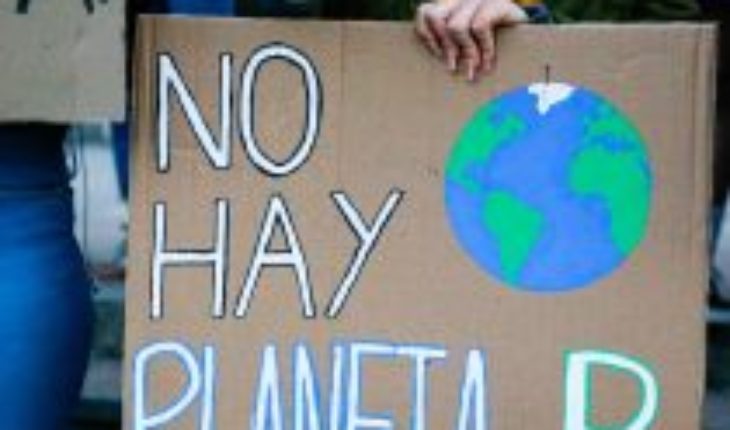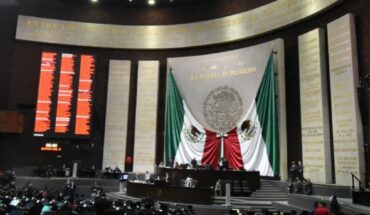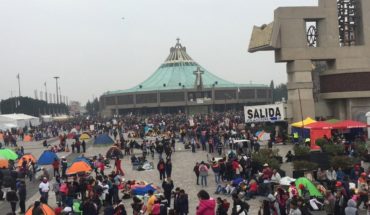
The recent agreement between the opposition and the Government contains elements that need to be of concern to us and, above all, to be the subject of a deeper analysis. Particularly striking are the mentions of environmental matters, because of the lack of long-term concepts and the false claim of encouraging a “green” investment. The urgency is clear, permanent drought and other environmental disasters remind us of this constantly.
An economic revival in a key to harmony with the environment contains two essential elements. The first is to understand the need for a change of course in economic matters in order to have a possible future in combating the climate and ecological crisis; the second is to begin the path that allows the material well-being of people, without compromising the existence of ecosystems or the well-being of future generations.
The agreement, however, does not look at these variables but tries to paint the same old solutions that have brought us to the crisis in which we are. In fact, in environmental matters it is mainly fixed on two things: more investment and more investment speed. Both, with the blind vision of GDP growth as the main objective, and without looking at impacts, effects or other variables.
Accelerating investment
The first worrying measures are those that point to the “fast track” of projects in their administrative processing, and while it is not negative to make processes more efficient, the way in which it is done is fundamental. The Agreement mentions the recommendations of the National Productivity Council (NSC) as the basis for “regulatory speeding and timelines for investment projects”. This document proposes measures in different areas and while many of them appear positive and need to be explored, considering the endemic problems that our development model demonstrates (including low productivity growth), the analysis should be in detail. We analyse here only two of the many measures proposed, understanding that they have been a central part of the discussion for the agreement.
The “fast track” or “modernization” aims mainly at modifying the Environmental Impact Assessment System (EIA). The need to make changes to this instrument has been being discussed for years, including government and citizen commissions, as well as a strong business lobby. The government of Sebastián Piñera considered it a priority and presented two bills to reform it, which found no support in Congress, making it virtually impossible for them to be approved.
In this context, entering the analysis of the content of the NSC proposals, one of its recommendations (2.5.1)[1] it seems particularly worrying, as it proposes the distinction of environmental components in the Environmental Qualification Resolution, between relevant and secondary, which is clearly a matter of law and cannot be implemented without modification to Law 19.300. The recommendation sees the possibility of this prioritization by regulation, but the principle of legality protects ecosystems in this area and we must be vigilant that regulatory changes are not attempted to circumvent this principle.
A second recommendation that concerns us is that proposed by the creation of a system of traceability of the approval process for investment projects. While traceability itself is not a problem, there are two complex elements related to incentives that could get misplaced here. By asking SEA officials to estimate the time limit for evaluating projects, there is a risk that they will not be able to establish an average that accounts for the diversity of initiatives that officials must evaluate and this system may impact on the quality of the evaluation, when we know that the demand for evaluation far exceeds the operational capabilities of the Environmental Assessment Service.
The delay in the processing of projects is mainly due to the lack of relevant information in the Studies presented by the holders, which must be reviewed by the State and re-made by the holders. A simple measure, which would make the system considerably more efficient and increase certainty not only for holders but for all, is that consultants hired to make studies and declarations were paid by holders, but contracted by tendering by the State. [2]This would also allow us to move forwardrequest for the construction of public baselines, incorporating recommendation 3.16 of the Productivity Commission, on the standardising of information. [3]
In addition, these changes would be put in the hands of the Office of Sustainable Project Management, a public body of an enlightenment nature that is a clear example of a pro-company intervention in the decision-making of the State Administration.
This Office has been strongly resisted since its inception, at the beginning of the current Government, as it operates in practice as a paid lobby office with public resources, to facilitate the approval of many projects. The great achievement of this office has been to generate a considerable erosion of the state apparatus, reducing the limited confidence that citizens could have in environmental decisions. Its charter of initiatives includes, among others, projects generating socio-environmental conflicts as symbolic as Dominga and Alto Maipo. But perhaps the worst feature of this office, is that it has absolutely no sustainability variable to choose the projects it supports, making in its name a false use of the concept that only contributes to its delegitimization.
The “green” investment
As with the sustainable projects office and its improper use of the concept, the agreement proposes something similar in what it calls “Green Emphasis Investment and Climate Change Mitigation,” where it includes public investment linked “to construction reservoirs, irrigation works and rural drinking water, desalination plants, investment in NCREs.” (sic). This initiative seems to have a Keynesian inspiration in the sense of promoting the construction of infrastructure as a way of generating jobs and investment, but its green component is practically non-existent.
Firstly, there is an emphasis, in relation to the water crisis, on a solution with very high environmental impacts and that it has no technical or political feasibility, such as the large works of reservoirs and irrigation. These works further alter the degraded ecosystems in which they would be located and require a series of activities that are in themselves generating environmental impacts and greenhouse gases. Technical unviability has to do not only with these impacts, but also with the projection on water flows in central Chile. [4]
Political inviability is such that in a recent consultation by the Government[5], such initiatives were well below those related to protecting the environment and ecosystems. This, although (i) the Government constituted a water advisory table with a deep bias towards industry, (ii) made this consultation without minimum standards of participation, (iii) the consultation attempted to validate its proposals (forcing the selection of several alternatives) and (iv) large movements and water organizations, were excluded from participating and called for not to do so. [6]
The public investment required in this area should be aimed at nature-based solutions, especially in terms of watershed recovery and water cycle protection. In ecosystem recovery there is a possibility of job generation and improvement of environmental conditions, with a vision for the future and long-term positive impact. At the urban level, advancing the implementation of green infrastructure would also mean generating jobs, investment and improving people’s living conditions. In the case of Santiago, even studies in this regard are advanced and waiting for execution.[7]
By way of conclusion, we would like to reiterate our call for an effectively sustainable revival, as has been proposed by numerous initiatives[8]. To this end, we must put the north in the rapid transition to a renewable energy matrix, a decisive investment plan in promoting public transport, the renovation and construction of sustainable housing, the promotion of the circular economy and a sustainable food system. The impetus for our economy should not be at the expense of ecosystems and must emerge from a country project of a new model of development that has democratic legitimacy and is oriented towards long-term well-being and not to GDP growth in exchange for the destruction of ecosystems and the livelihood of life.
[1] https://www.comisiondeproductividad.cl/wp-content/uploads/2020/03/Informe_Calidad_Calidad_Regulatoria_Sectores_Estrategicos-2020-03-11.pdf
[2] http://www.fima.cl/site/wp-content/uploads/2016/08/CSCP-SEIA-FINAL-08.08.16.pdf
[3] https://www.comisiondeproductividad.cl/wp-content/uploads/2020/03/Informe_Calidad_Calidad_Regulatoria_Sectores_Estrategicos-2020-03-11.pdf
[4]See: Fundación Chile, Water Scenarios 2030. https://escenarioshidricos.cl/wp-content/uploads/2020/06/futuro-del-agua.pdf
[5] https://www.mop.cl/Documents/Resultados_Consulta_Digital_Mesa_del_Agua.pdf
[6] https://www.elmostrador.cl/destacado/2020/04/26/mesa-del-agua-baja-representatividad-y-vision-sesgada-para-una-politica-publica-urgente/
https://radiojgm.uchile.cl/mat-rechaza-la-realizacion-de-la-encuesta-por-la-mesa-del-agua/
[7] http://infraestructuraverdesantiago.cl/
[8] Among others, http://www.fima.cl/wordpress/wp-content/uploads/2020/04/Reactivacio%CC%81n-Sustentable2.pdf; https://www.nuestraamericaverde.org/ ; https://pactoecosocialdelsur.com/
The content poured into this opinion column is the sole responsibility of its author, and does not necessarily reflect the editorial line or position of El Mostrador.





